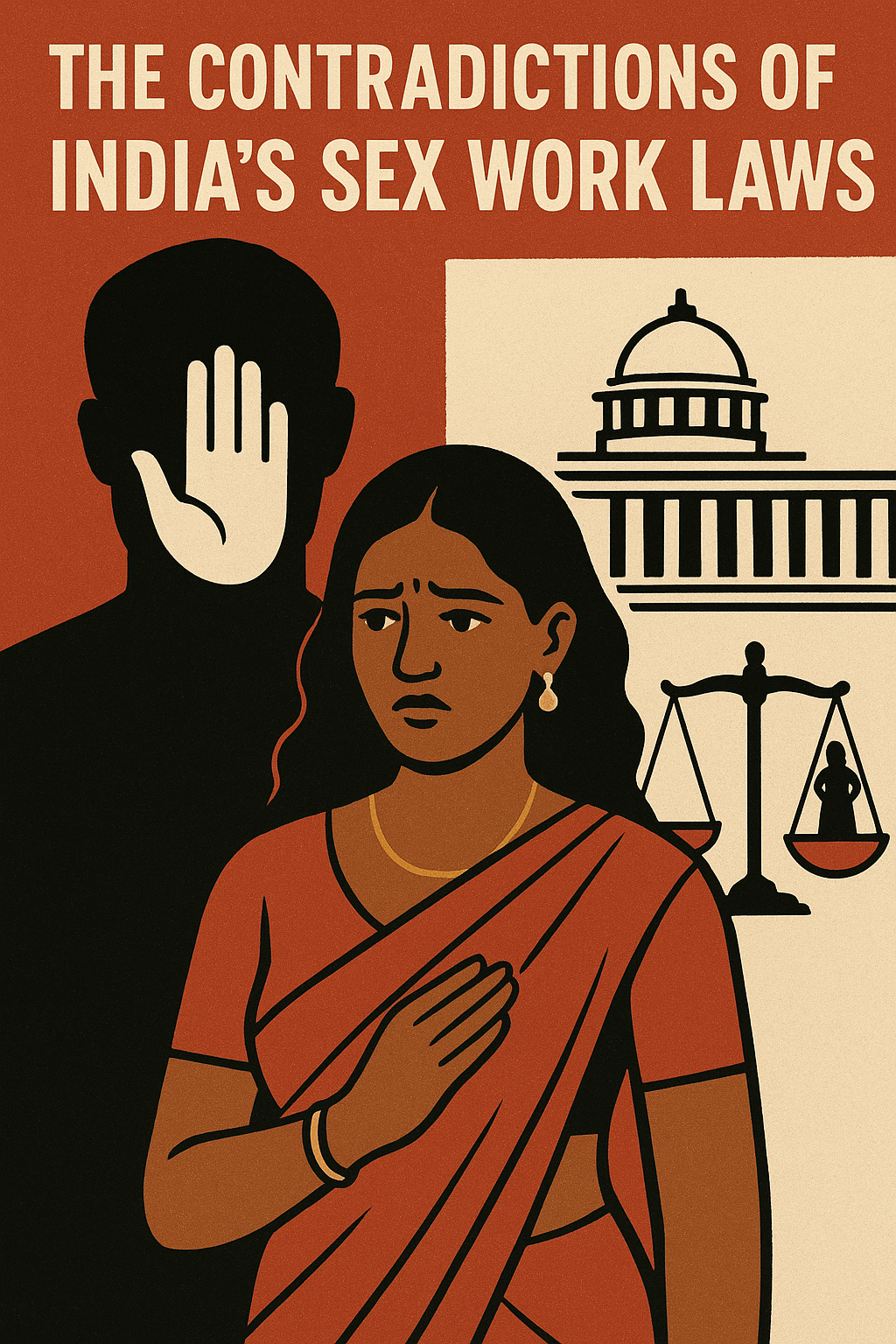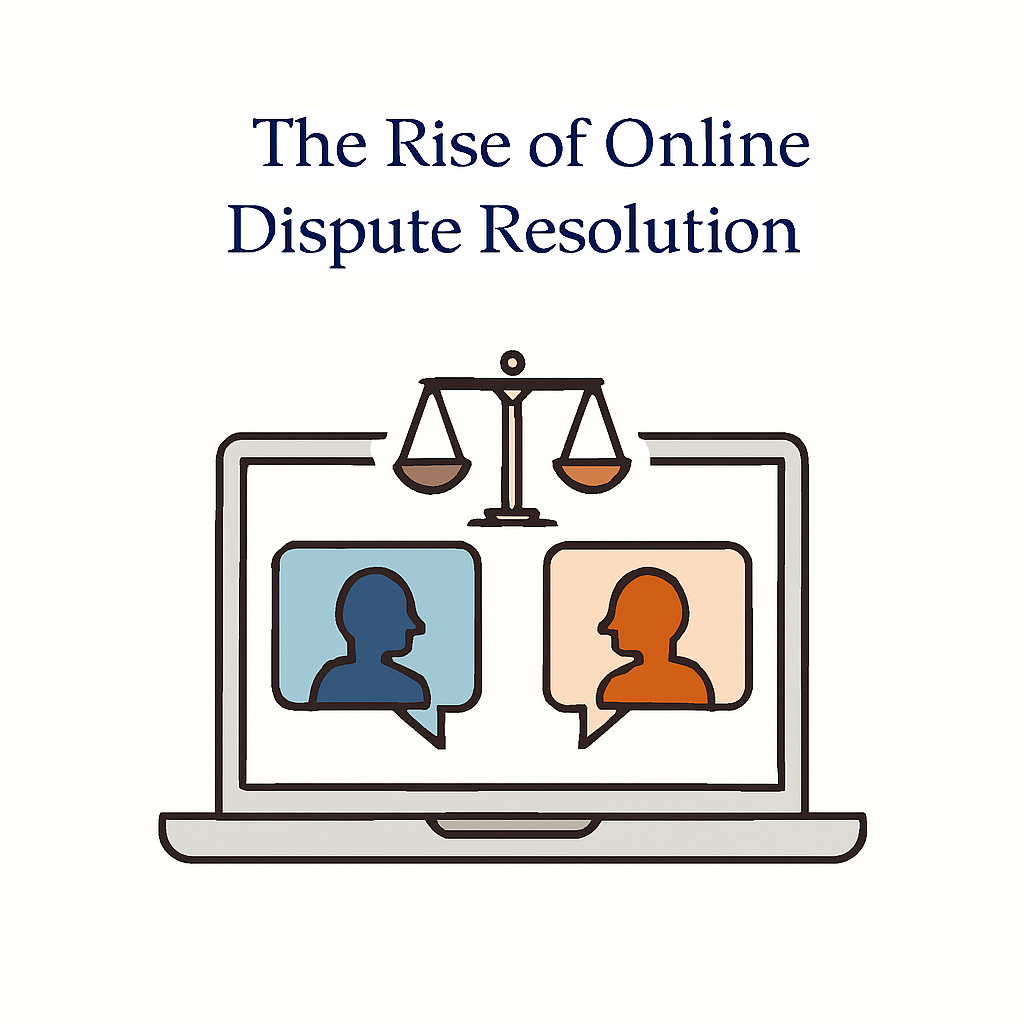



Name: Saurabh Sankhla
University: Symbiosis Law School, Pune
Introduction
With the advent of the digital age, the industries and society must adapt to the changing environment as well as the changing nature of work and incorporate the innovative and new methods into their working field. The same applies to the field of law, especially the Dispute Resolution System of the nation. The judiciary remains and will always be one of the most effective dispute resolution mechanisms, however, the administrative needs and other necessary workings behind the scenes take a long time to process matters and unfortunately, this delays the resolution.
The judiciary and the government have acknowledged the issue and have emphasised the matter of ADR, Alternate Dispute Resolution, such as arbitration, mediation, negotiation, conciliation or Lok Adalats. These mechanisms are cost-effective and aim to provide an amicable solution to the disputed parties. The mechanisms focus on solutions that are mutually agreed upon by the disputed parties and attempt to create a win-win situation where no party remains aggrieved.
The advancement in science and technology has developed methods to complement and supplement the Alternate Dispute Resolution mechanism. The Online Dispute Resolution (ODR) is a technology supported methods for ADR, such as online negotiation, online mediation and online arbitration. The ODR provides virtual platforms to resolve conflicts between parties amicably, bringing more efficiency to the mechanism.
What is ODR?
ODR stands for Online Dispute Resolution, an expansion of the Alternate Dispute Resolution mechanism integrated with the technology especially Information and Communication Technology (ICT) to resolve conflicts more efficiently and effectively through extensive usage of electronic means of communication.
The growth in digital interaction and transaction between people (maybe located at great distance from each other in physical world) through virtual platforms and expansion of E-commerce market, the disputes arising in these platforms are inevitable. Thus, the ODR is very crucial and much needed mechanism to ensure smooth functioning and interaction and for government to maintain law and order in the cyberspace.
Evolution
The Online Dispute Resolution can be traced back to the early 1990s, with the rise of the digital age and e-commerce and the increased use of the internet for communications, interactions and transactions. The advent of cyberspace has brought both opportunities and risks along with it. Cyberspace provides a platform, an easily accessible place and is available for people to interact and communicate with one another even if located at great distances in the physical world. This has increased the risks of more conflicts, but similarly, the platform has been developed in phases to resolve these conflicts through digital methods. In India, it has developed through various phases-
“In 2006, the National Internet Exchange of India introduced the ‘.IN’ Domain Name Dispute Resolution Policy (INDRP), incorporating Online Dispute Resolution for domain-related conflicts.
In 2011, Chennai hosted the 10th Annual International Forum on Online Dispute Resolution, bringing global attention to the practice.
By 2017, the Ministry of Law & Justice encouraged government bodies to adopt online arbitration methods for resolving disputes.
In 2018, the Ministry of Micro, Small and Medium Enterprises launched the SAMADHAAN Portal to tackle delayed payment issues faced by micro and small enterprises through ODR.
In 2019, the Electronic Alternate Dispute Resolution Challenge was initiated to identify and support startups developing ODR solutions.
The year 2020 witnessed several key developments, the Government of India launched the Vivaad Se Vishwas Scheme to facilitate faster resolution of tax disputes via ODR; The Vidhi Centre for Legal Policy released a report advocating for the mainstream use of ODR in India; Niti Aayog set up a committee under the leadership of Justice AK Sikri to expand ODR adoption; The state of Chhattisgarh organized its first virtual Lok Adalat offering digital conciliation; and the Parliamentary Standing Committee on Personnel Public Grievances, law and Justice recommend integrating technology into arbitration and conciliation mechanisms.”
Advantages
Cost Efficient – ODR can significantly reduce legal expenses by speeding up the resolution process and, in some certain cases, reducing the reliance of legal counsel. ODR ensures that the resolution mechanism is more affordable and accessible than the traditional ADR.
Convenience and Speed – By removing the need for physical travelling and eliminating the difficulty of setting schedules for all the parties, ODR ensures quicker, simpler and more accessible resolution mechanism.
Enhanced Access to Justice – The goal of equal access to justice of the United Nations Sustainable Development Goals, 2015, the ODR plays a crucial role in implementing and symbolising India’s commitment to Sustainable Development. ODR provides platforms to facilitate negotiation, mediation and promote amicable solutions between parties, making the resolution process easier to navigate for all parties.
Reduction of Unconscious Bias – Digital dispute resolution platforms and tools can assist in minimising implicit biases that may influence the decisions of mediators or negotiators or arbitrators during in-person proceedings.
Challenges & Limitations
Digital literacy Gaps – Effective participation in ODR demands a foundational level of digital literacy. However, in India, proficiency with Information and Communication Technology (ICT) greatly varies across different age groups, regions, communities etc. Bridging this gap is essential to ensure that ODR becomes accessible to all and does not remain available to a handful people.
Inadequate Digital Infrastructure – For ODR to be effectively adopted, reliable technological infrastructure must be made available across the nation. This includes internet connectivity, access to reliable and safe devices and technical support in all the areas including the urbans as well as rural areas.
Skepticism towards Technology – A large portion of the population is still hesitant to embrace and adapt to the changing technological advancements. This lack of confidence in ODR platforms forms an obstacle in the effective and efficient utilisation of the ODR and has potential risk of making regressive effect on the society.
Privacy and Confidentiality Risks – As ODR relies heavily on the digital communication, and reduces the direct personal interactions, it introduces concerns relating to the security, safety, privacy and confidentiality of sensitive and personal information exchanged during the resolution proceedings.
Suggestions and recommendations
Promote Digital Literacy and Awareness – Targeted digital literacy campaigns should be organised with the help of NGOs, or Legal Services Authorities to spread awareness and encourage the public to use these online platforms as a dispute resolution mechanism. Training programmes to help the public understand the procedures and enable them to access and use these online platforms can be conducted at the grassroots levels, including schools, community centres, etc.
Build Trust and Confidence in ODR – to overcome public skepticism, campaigns highlighting successful cases be organised where the people who have participated shall be encouraged to share their experience with the public. Professionals and experts shall explain the advantages of ODR, and can organise workshops where people can take part, similar to the Lok Adalats.
Policy and Legislative Framework – the government should develop a framework comprising of comprehensive policies, rules and regulations and amend existing laws to incorporate the newly developed and developing technologies, such as ODR. The law should recognise these new and innovative methods for dispute resolution mechanism, define its procedures, clarify jurisdictions.
Incentivizing ODR use in Commercial Disputes – Encouraging Businesses and institutions to adopt ODR mechanisms, especially for small claims and contract disputes, can create momentum. Offering tax benefits or other subsidies for early adopters may promote faster integration of the ODR mechanism in the society.
Ethical Practices & Consideration
Voluntary Participation – Parties should not be compelled or forced to participate in the Online Dispute Resolution, unless law mandates it. The process should be voluntary, the essence of Alternate Dispute Resolution mechanisms.
Competency and Training – ODR facilitators and professional must be adequately trained in both ethical and technical aspects of digital dispute resolution. This includes understanding of cultural sensitivity, interpersonal communication skills and limitations of the digital tools.
Confidentiality and Privacy – Ethical ODR mechanism must ensure that all the details and sensitive information shared by the parties are confidential. Secure storage, limited access and encrypted communications are essential in these digital platforms to protect the users’ data and maintain trust.
Informed Consent – Parties involved in ODR should be fully informed about the nature of the process, the technology being used, their rights and the implications of agreeing to a resolution. Consent should be given voluntarily, without any pressure, manipulation, deception or fraudulent means.
Accessibility – Ethical ODR must be accessible to people regardless of their socioeconomic backgrounds, including those with limited digital literacy or disability. the system should not exclude individuals based on geography, language, or technological barriers.
Transparency – The procedures, rules, timelines and the purpose of the platform being used should be communicated to all parties. Additionally, platforms should disclose how mediator or negotiators are selected and how decisions are documented.
Application in various fields/sectors/industries
ODR has the potential of wide-range applicability across multiple sectors due to its adaptability, efficiency and user-centric approach. Its integration into the multiple fields is important for the transformative shift from traditional dispute resolution system to modern and more advanced, more efficient, cost effective, more accessible and more affordable.
E-commerce and Commercial Disputes – The growth in e-commerce has increased transactions between consumers/buyers and sellers which has inevitably also resulted in increased disputes, such as late deliveries or product defects between them. ODR platforms enable faster resolution of such grievances ICT, reducing the need for litigation or even traditional ADR mechanisms, enhancing customer satisfaction.
Banking and Financial Services – Disputes related to loan defaults, unauthorised transactions, digital fraud or credit card issues are increasingly handled through ODR platforms. Financial institutions benefit from ODR by resolving the disputes faster and avoiding lengthy court processes, thereby preserving their resources and maintain customer relations.
Cross-border and International Trade – ODR is crucial in resolving disputes in international commercial transactions where parties are based in different jurisdictions. It reduces the problem of enforcing cross-border judgments and offers an amicable solution to the disputes. The ODR mechanism ensures that the jurisdiction of authorities is not in conflict and that the parties are not required to unnecessarily spend on travel for dispute resolution.
Conclusion
Online Dispute Resolution (ODR) symbolises a transformative shift in the justice delivery system, offering an innovative blend of technology and traditional dispute resolution mechanisms. As the digital era continues to reshape how individuals interact, transact and communicate, it becomes imperative for legal system to adapt accordingly. ODR offers significantly quicker, more accessible, and cost-effective alternative compared to traditional litigation or others forms of alternative dispute resolution.
However, the successful implementation of ODR in India hinges on overcoming key challenges such as digital literacy gaps, Infrastructure deficits, public scepticism and other limitations. Addressing these through targeted reforms, campaigns, and workshops is crucial to spread awareness about the ODR, their advantages, their ethical practices and consideration and applicability in multiple fields. ODR can serve as a bridge between justice and the people, reshaping the dispute resolution process much faster, more efficiently and more effectively. Ultimately, ODR holds the potential to democratize access to justice and align India’s legal system with the demands of a digital future.